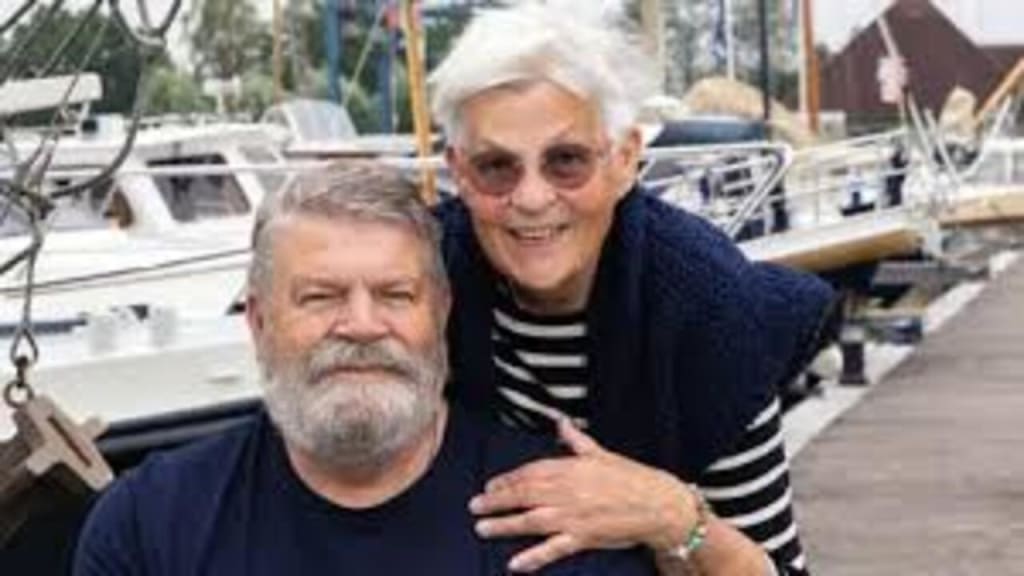Dying together: Why a happily married couple decided to stop living.
Jan and Els were married for nearly 50 years. In early June, they chose to die together with the help of two doctors who gave them medicine to end their lives. This is called duo-euthanasia in the Netherlands. It's legal but not very common, though more couples in the Netherlands are deciding to do it each year.

Jan and Els, united in matrimony for nearly half a century, passed away together in early June after receiving a lethal dose of medication from two physicians. This act, termed duo-euthanasia, is legally permissible but infrequent in the Netherlands. Nevertheless, more Dutch couples opt for this end-of-life choice annually. The following narrative may evoke strong emotions.
Three days prior to their planned demise, Jan and Els' campervan was parked at a serene marina in Friesland, a northern region of the Netherlands. The couple, avid travelers, had spent the majority of their marriage living in a motorhome or on boats. Jan humorously remarked on their attempts to reside in a conventional house, "We tried sometimes [to live] in a pile of stones - a house, but it doesn’t work." Seventy-year-old Jan, seated in the driver's seat with one leg bent to alleviate his chronic back pain, shared this with me. His wife, 71-year-old Els, afflicted with dementia, struggled to articulate her thoughts. Gesturing to her body, she stated, "This is very good," then pointing to her head, she added, "But this is terrible."
Their journey began in kindergarten, fostering a lifelong partnership. Jan, a former hockey player for the Netherlands' national youth team, transitioned into a sports coaching career. Els, trained as a primary school teacher, shared a profound love for water, boats, and sailing with Jan. As a young couple, they resided on a houseboat, later transitioning to a cargo boat for their business of transporting goods along the Netherlands' waterways. During this time, Els gave birth to their only son, who attended boarding school during the week and spent weekends with his parents. The family embarked on work trips to intriguing destinations such as the river Rhine and the Netherlands' islands.
By 1999, the inland cargo business grew increasingly competitive, and Jan's severe back pain from years of strenuous work necessitated a change. They moved to land but soon returned to their aquatic lifestyle until it became unmanageable. They then acquired a spacious campervan. Despite undergoing back surgery in 2003, Jan's condition did not improve, leading him to cease pain medication and work, while Els continued teaching. The couple occasionally discussed euthanasia, with Jan expressing his reluctance to endure prolonged physical limitations. They eventually joined NVVE, the Netherlands' "right to die" organization.
In 2018, Els retired from teaching, showing early signs of dementia but avoiding medical consultation, likely due to witnessing her father's decline from Alzheimer's. Her symptoms escalated, and in November 2022, after a dementia diagnosis, Els stormed out of the doctor's office in a rage. This prompted discussions of duo-euthanasia among Jan, Els, and their son. In the Netherlands, euthanasia and assisted suicide are lawful if requested voluntarily, and the individual's suffering is deemed "unbearable" with no improvement prospects, as assessed by two doctors.
In 2023, 9,068 people in the Netherlands opted for euthanasia, constituting 5% of total deaths, including 33 duo-euthanasia cases. These complex scenarios, especially when one partner has dementia, pose challenges in ensuring consent. Dr. Rosemarijn van Bruchem, a geriatrician and ethicist, highlights doctors' hesitation to perform euthanasia on dementia patients due to uncertainties in assessing their suffering and mental capacity.
Jan and Els' GP was unwilling to facilitate their request, prompting them to contact a mobile euthanasia clinic, the Centre of Expertise on Euthanasia. This clinic supervised 15% of assisted deaths in the Netherlands, approving approximately one-third of the requests. For couples, doctors must ascertain that neither partner is coercing the other. Dr. Bert Keizer, who has attended duo euthanasia cases, recounted instances where the process was halted due to suspicions of coercion.
Dr. Theo Boer, a professor of healthcare ethics, criticizes the growing trend of duo-euthanasia, cautioning against normalizing such acts. Despite the increasing acceptance, he stresses that intentional killing should remain an exception, emphasizing advancements in palliative care.
Jan and Els could have continued living in their campervan indefinitely but chose otherwise. Els, assessed by doctors to have the capacity to decide her fate, feared losing this ability as her dementia progressed. Their son struggled with the decision, despite understanding their reasoning.
On the eve of their final appointment, the family gathered for a poignant farewell. The next day, surrounded by loved ones, Jan and Els shared memories and music before the doctors administered the lethal medication. Jan Faber and Els van Leeningen passed away on June 3, 2024. Their son has decided to keep the campervan for a while, intending to create family memories before eventually selling it.
Amarjeet jandawar
About the Creator
Enjoyed the story? Support the Creator.
Subscribe for free to receive all their stories in your feed. You could also pledge your support or give them a one-off tip, letting them know you appreciate their work.





Comments (1)
Thanks for sharing it.